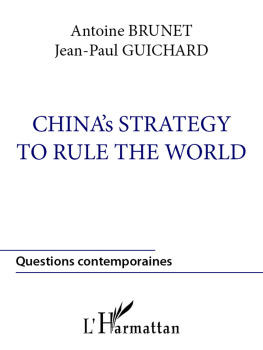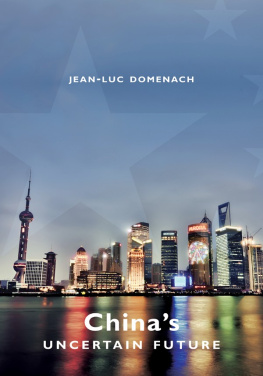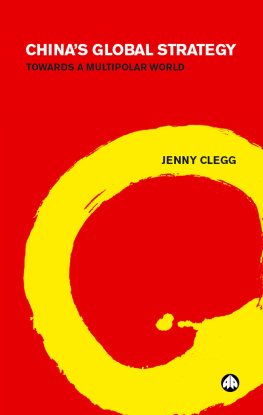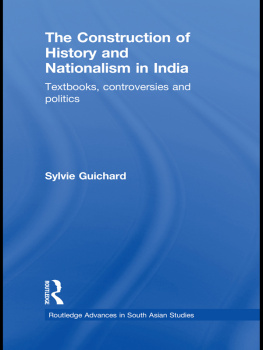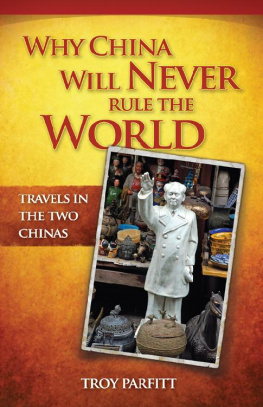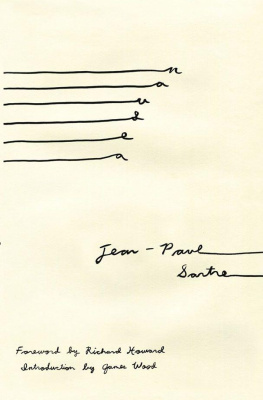INTRODUCTION
Let China sleep, for when the Dragon awakes, she will shake the world.
Napoleon Bonaparte
Sainte-Hlne, 1816
1789, 1989 two historic years to remember. The year 1789 marked the fall of the Bastille, an event that has become a symbol of freedom for all mankind. In 1989, the world celebrated the bicentennial anniversary of this seminal event in numerous ways, most notably with the fall of the Berlin Wall, the Velvet Revolution, the collapse of the totalitarian Soviet empire and the peaceful restoration of basic freedoms to its peoples. Today, we often think of 1989 as the year that marked the end of the Cold War between the two competing superpowers of that era, the United States and the USSR. What we tend to forget is that it was also the year of the Beijing Spring, when on May 30 students erected the Goddess of Democracy statue on Tiananmen Square opposite Maos portrait. Unsure at first how to respond to the peoples demands for freedom and democracy, the Chinese authorities hesitated briefly. But it would not take long before they gave their people and the world a clear indication of their position on such matters. On June 4, a tank crushed the statue, and the glorious Peoples Army of China massacred the students. Once again, totalitarianism prevailed, in spectacular fashion.
Alas, memory can be quite selective. Today, all we seem to recall from the reign of Deng Xiaoping is that he restored capitalism to China. We forget his war against Vietnam in 1979, his support for the Khmer Rouge, and the merciless repression in China in 1989. Above all, we tend to neglect the nature of the totalitarian brand of capitalism that he helped cultivate in China a type of capitalism Europe came to know all too well under Mussolini and Hitler. We forget all these negative aspects because today we desperately want to believe that China is a much-needed partner with whom we can do good business. We dont want to see, or allow ourselves to suspect, the many signs that Chinas ultimate goal may in fact be nothing more nor less than world domination and the spread of its own unique brand of totalitarianism around the globe.
Such a view is certainly gloomy, but is it all that improbable? This book sets out to demonstrate that, if the world fails to recognize the extent of the threat and take appropriate action in a timely way, this is exactly the fate that awaits it. We shall conclusively refute the belief, often repeated but never proven, that capitalism needs democracy in order to prosper, and that China must therefore be inexorably moving forward towards democracy.
Deng Xiaoping and the leaders of the Communist Party of China (CPC) gave us a clear answer in 1989 about their resolve to prevent democracy in China. Now they are going a step further, by attempting to prove in practice that their brand of totalitarian capitalism will prevail over democratic capitalism.
During the past two centuries, the world has been dominated successively by two economic empires: first Britain, then the United States. The imperial destiny of these two economic superpowers went hand in hand with the promotion of democratic norms and values, inherited from 18 th century Europes Age of Enlightenment, which was mainly French and British in origin. The world was thus governed by powers that developed a democratic form of capitalism.
In those days, the big challenges could already be found in the inherent tensions caused by recurrent trade imbalances with foreign partners, which gave rise to a great many conflicts, some extremely violent. All of the major nation-states understood the benefits of generating sustainable trade surpluses. A favorable balance of trade is fundamental to the mercantilist economy. However, since world trade is a zero sum game, only one nation at a time can be the big winner.
The United Kingdom was the first nation-state to practice this mercantilist strategy of recurrent trade surpluses in a sustainable and efficient manner. Its major advantage came from the strength of its Navy. However, it had to overcome the resistance of France (from Louis XIV to Napoleon), and later that of imperial Germany from 1870 to 1918.
In the beginning of the 20 th century, the United States became the world trade surplus champion, thanks in large part to its cheap labor and abundant natural resources. This status became even more pronounced after World War I. By the 1940s, the United States had overtaken the United Kingdom as the dominant world power. However, between 1942 and 1945, it too faced the challenges of the totalitarian capitalist powers (Nazi Germany, fascist Italy and militarist Japan). And until 1989, the United States also faced an alternative totalitarian challenge from the Soviet Union: totalitarian collectivism. That same year, the United States finally managed to put an end to the threat from Japan, which between 1960 and 1989 had adopted its own mercantilist strategy based on monetary protectionism.
China subsequently imitated the Japanese, developing its own capitalist model for growth based on significant trade surpluses driven by an undervaluation of its currency. Western countries reactions to these two cases of monetary protectionism, however, could not be more different.
While Japanese industry supplies the world with finished goods that directly compete with those of Western industries, the Chinese act as subcontractors in all areas of manufacturing. While American companies struggled against stiff competition from Japan, they benefit from increased profit margins because of Chinas lower manufacturing costs. The American business community was thus actively opposed to Japan but remained rather complacent about China.
In 1989, when the Soviet system collapsed and rival Japan tumbled headlong into the crisis into which the United States had pushed it, a new capitalist power began to emerge with the following two characteristics: a totalitarian political regime and a mercantilist economic strategy. This power was China.
From the Soviet experience, Deng Xiaoping retained an important lesson: one cannot become the dominant world power simply through diplomatic or military confrontation. He realized that it was essential to first achieve economic dominance. Understanding that a collectivist system could not accomplish this, he decided in 1978 to abandon collectivism, opting instead for capitalism. This implied a return of private entrepreneurship and a decentralized economic organization. But the big mistake committed by the West was to think that China had opted for both capitalism and democracy. After 11 years of hiding its true intentions, the CPC lifted its mask and stated that it had irreversibly opted for totalitarian capitalism. Since then, to the great disappointment of the worlds democrats, the CPC has set out to prove that capitalism is perfectly compatible with totalitarian society, a society in which each individual is subservient to the State and to the Party that leads it
From the Japanese experience, Deng retained that monetary protectionism is a remarkably efficient tool with which to achieve economic dominance.
As we will later show, China uses this strategy to destabilize the developed countries, in a bid to become the dominant world power, while strengthening its political regime and expanding its influence to numerous countries around the globe.

